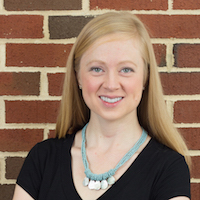Study finds that breast cancer patients enrolled in medical homes may have improved access to health care
September 10, 2015
A new study suggests that women with breast cancer who are enrolled in Community Care of North Carolina (CCNC), a patient-centered medical home (PCMH)-like program, may have improved access to primary and specialty care.
A PCMH is a health care model that seeks to improve effectiveness and efficiency of treatment by linking each enrolled patient to a personal physician who leads a care team. That team provides whole-person, comprehensive care and integrates care across facilities.
As PCMHs are being increasingly implemented, a research team decided to study their effect specific to female breast cancer patients who were enrolled in Medicaid’s CCNC program.
Racquel Kelly Kohler, PhD, a 2015 alumna of the Department of Health Policy and Management at the UNC-Chapel Hill Gillings School of Global Public Health, is lead author. Her former adviser, Stephanie Wheeler, PhD, assistant professor of health policy and management at the Gillings School, is senior author and principal investigator of the study, which was funded by a University Cancer Research Fund Health-e-NC Award. Kristen Hassmiller Lich, PhD, research assistant professor, and Marisa Domino, PhD, professor (both with the Department of Health Policy and Management), were also co-authors.
The researchers used North Carolina Medicaid claims, linked to N.C. Central Cancer Registry records, to examine monthly patterns of health care use and expenditures for female patients with breast cancer.
From these data, they determined that patients enrolled in CCNC utilized health care differently during the 15 months following a breast cancer diagnosis.
Among the 758 breast cancer patients whose records were analyzed, about 50 percent were enrolled in CCNC at some time in the 15 months post-diagnosis. CCNC enrollment was significantly associated with greater outpatient service use and slightly increased average expenditures (approximately $429 per month) during this time.
The greater outpatient care utilization and increased average expenditures may suggest that women with breast cancer who are enrolled in CCNC have improved access to primary and specialty care. This suggests that expanding PCMH programs may change patterns of service utilization for Medicaid breast cancer patients, which may in turn lead to slightly higher costs in the short term.
Any increased utilization and increased costs in the short term, however, may translate to patients receiving more appropriate, more timely health care that can avert longer term, potentially avoidable healthcare utilization via inpatient and emergency department settings.
The full article on the findings, titled, “Association between medical home enrollment and health care utilization and costs among breast cancer patients in a state Medicaid program,” was published online Aug. 19 by the journal Cancer.
.
Gillings School of Global Public Health contact: David Pesci, director of communications, (919) 962-2600 or dpesci@unc.edu


